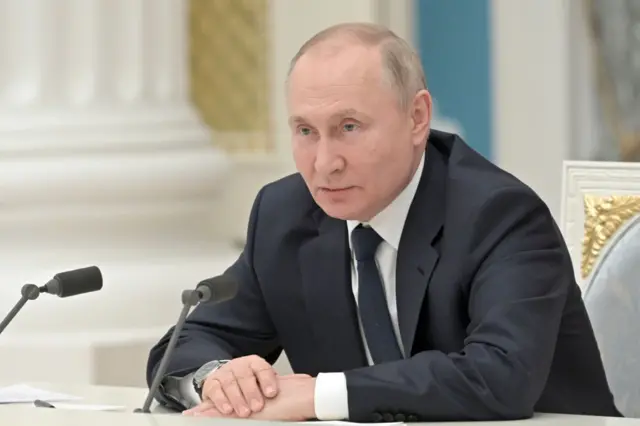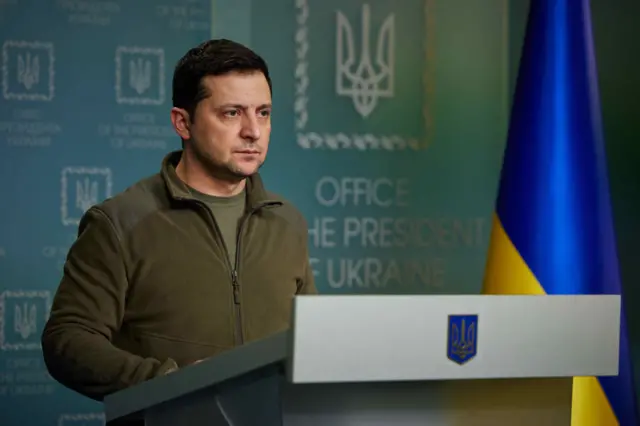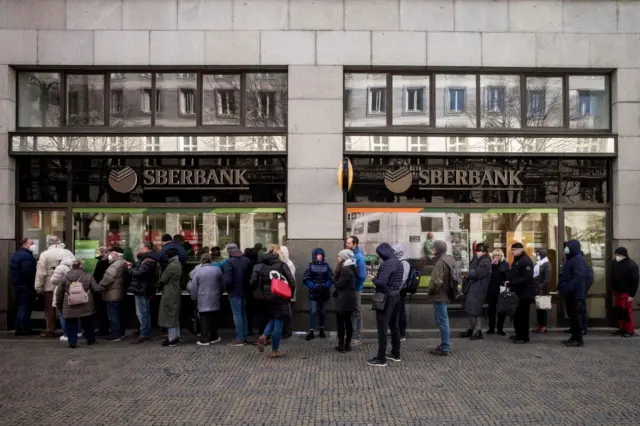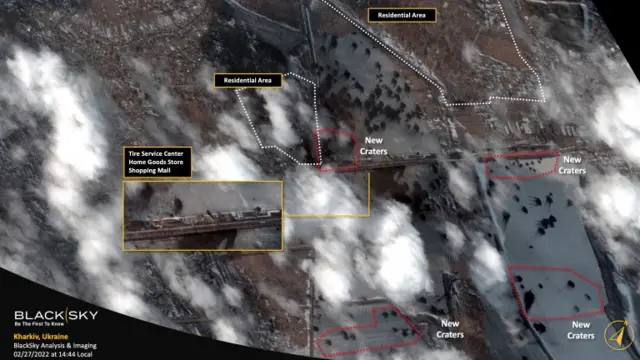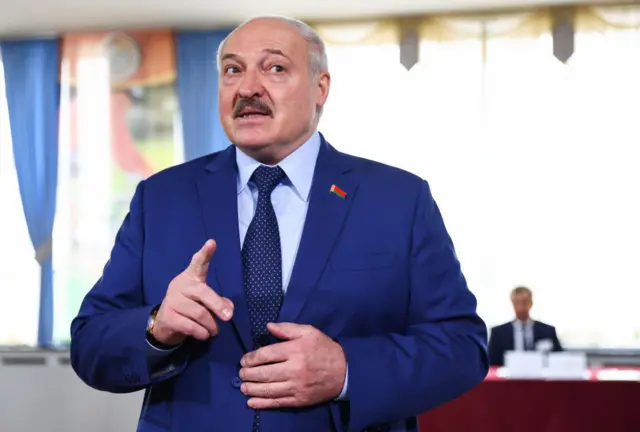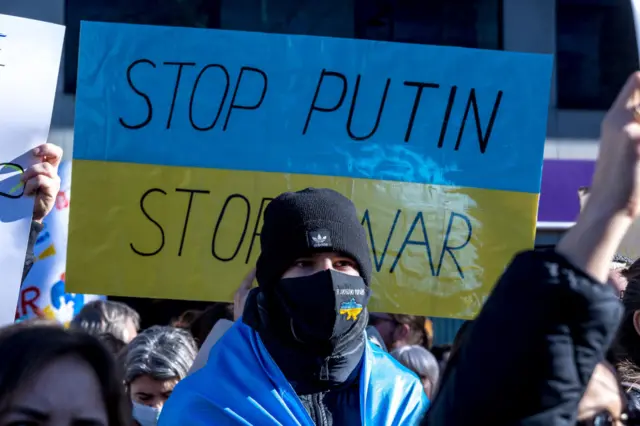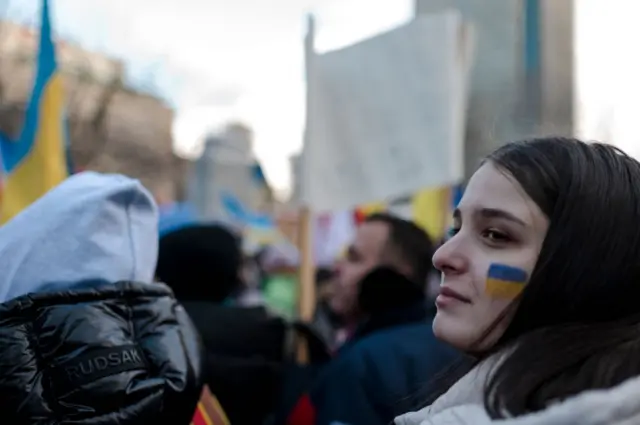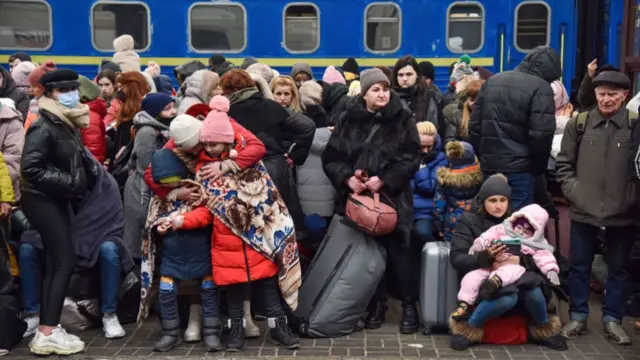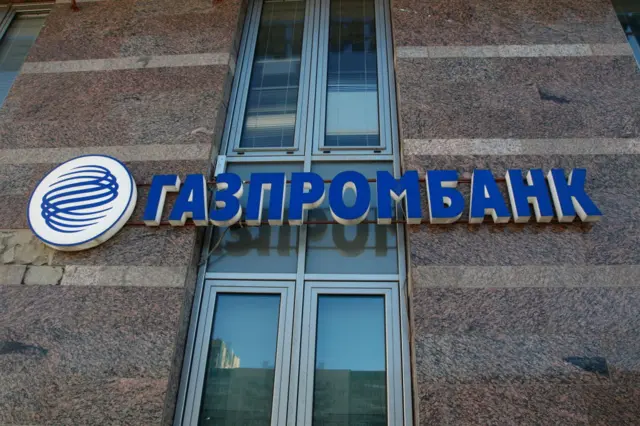A phone call, a warning and a stinging rebuke - latest from USpublished at 02:49 GMT 28 February 2022
As night falls in the US, here are the latest key developments from there:
- Secretary of State Antony Blinken held a call with the foreign ministers of G7 countries, as well as Ukraine, in which he said the group was "supporting the Ukrainian people and imposing severe costs and consequences to hold Russia accountable for its war of choice"
- The State Department issued a warning to American citizens currently in Russia, advising them to leave "immediately"
- The governor of New York signed a bill banning the state government from doing business with Russian entities
- New York City's famed Metropolitan Opera announced that it was cutting ties to pro-Putin musicians and artists
- Republican 2012 presidential candidate and current senator Mitt Romney rebuked members of his party who have voiced support for Russia, calling them "morons"
- Anti-Russia protests have continued across the US
- In Chicago's Ukrainian Village neighbourhood, Governor JB Pritzker used an expletive to denounce Putin to the crowd
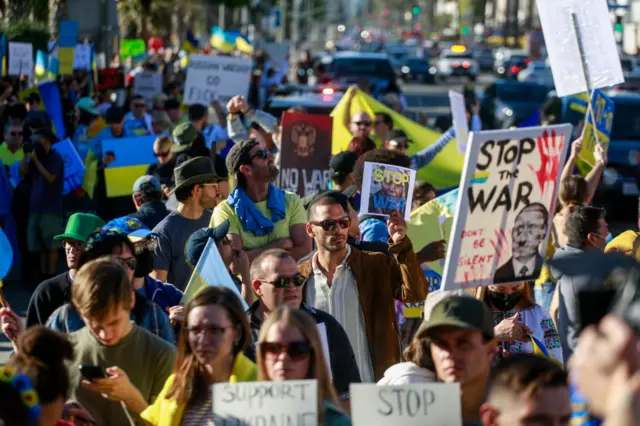 Image source, Getty Images
Image source, Getty ImagesProtesters in Santa Monica, California, on Sunday



